Top 10 Malaysian Culture, Customs, and Etiquette
Malaysia is a multi-ethnic and multi-cultural land with Malays, Chinese, Indians, and Orang Asli/indigenous people who all share a unique cultural identity and ... read more...are yet able to continue the practice of their respective traditions. The Malays form the majority of the population and have their own customs and traditions that are followed by the Malay community. Here's your guide to Malaysian Culture, Customs, and Etiquette before you visit it.
-
In Malaysia, greetings are significant because they are believed to convey the respect you would provide to that person moving forward. Malaysians usually greet by clasping their hands, then withdrawing one hand to the chest, and slightly bowing to show respect. They seldom ever shake hands with people of the opposing sex. Because it is customary for Malaysians, particularly Muslim women, to refrain from touching flesh. Therefore, it is advisable to let women initiate a handshake when speaking with them in this country rather than taking the initiative yourself.
"Salaam" is the standard spoken salutation in Malaysia. Formal greetings involve extending both hands to the recipient's right hand and placing it between one’s own. The individual then makes a small bow and places their own right hand on their heart. To greet an older person, gently bowed the head. Put your forehead or the tip of your nose on the back of the elder recipient's hand if you're in a more formal environment. Older Malaysian Chinese people may look down on greetings out of respect.
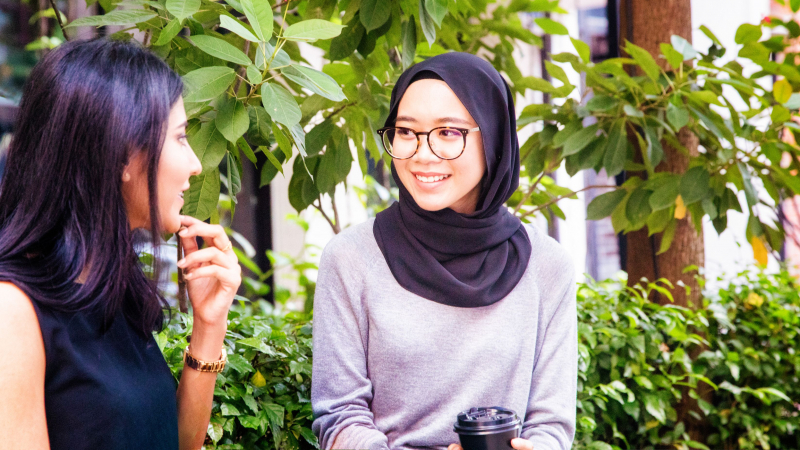
tripsavvy.com 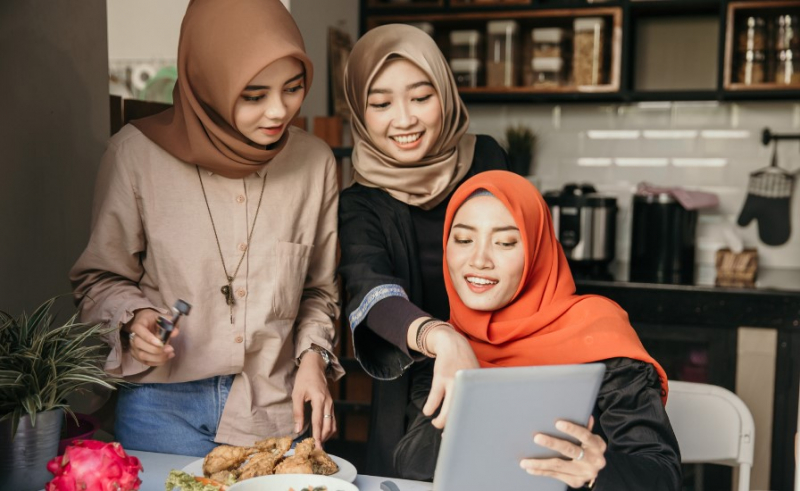
ling-app.medium.com -
You should be aware of Malaysian culture, customs, and etiquette before visiting there since the majority of Malaysians are Muslims and their clothing is frequently quite covert. The Baju Melayu, a loose, long-sleeved shirt worn over a pair of pants, is the traditional Malay outfit for males. When heading to the mosque for prayers, a white headgear called a Kopiah is worn. Along with the ceremonial attire, leather shoes are also worn, as well as a velvet headgear known as a Songkok. The Baju Kurung, a loose tunic worn over a long skirt and typically made of batik, silk, or sungkit material, is worn by women. The head is covered with an item referred to as a Selendang shawl.
Typically, they wear simple, modest clothing and subduedly colored outfits. However, people will always select the brightest outfits for themselves during holidays. The Chinese people's costume culture has an impact on this to some extent. Therefore, you need to pay attention to how to dress with your neck covered, wear long sleeves, and not display your thighs in order to be able to fit in with the customs and traditions of Malaysia (for men, you can wear a collarless shirt). As you explore Malaysia's temples, keep in mind that you should dress modestly and take your shoes and slippers off before entering any temples or other dignified areas.
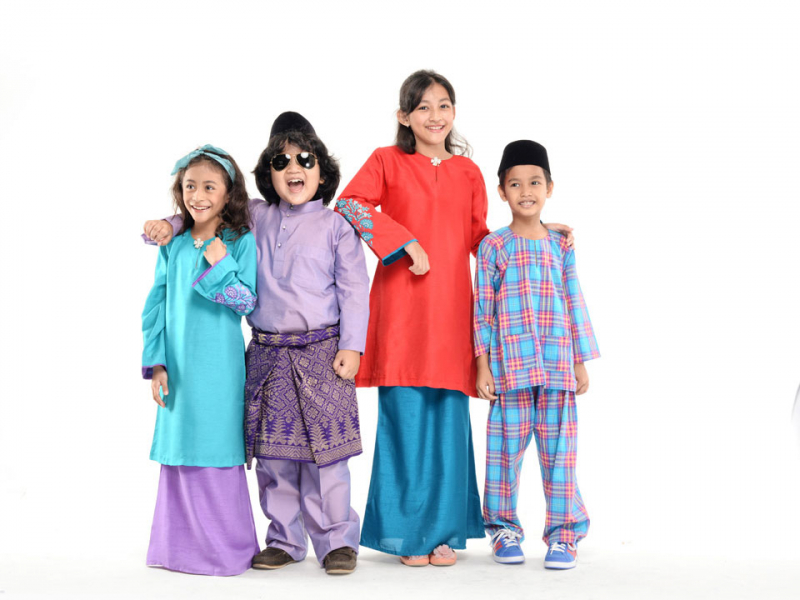
poya.com.my 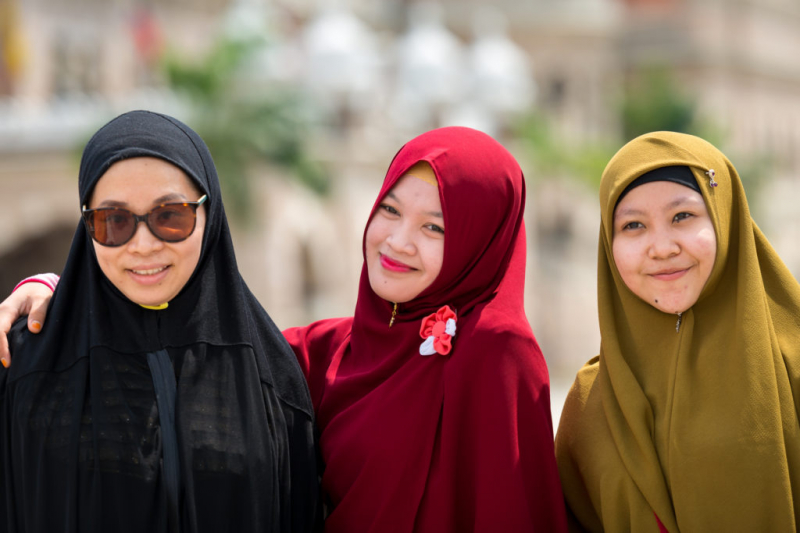
imb.org -
Eggs have long held as much significance to cultures as the Easter eggs of Christians. And Malaysians also have an interesting custom about eggs. It is to whack a red egg on the forehead on a birthday. According to Malaysian beliefs, if it’s your birthday you need to be knocked on your head with a hard-boiled red color egg. It's hard enough to actually break it. Then it’s up to you whether you want to eat it or not. The Egg signifies reproduction and growth, so Malaysian kids gotta do this even when they’re young which usually results in a lot of crying kids. However, as you get older, it gets less painful – and this signifies your ability to deal better with pain as you mature.
In Malaysian culture, it is common to hold a red egg and ginger party at the baby's first-year birthday. On this occasion, the baby's name is often revealed to friends and family. Guests may discover a dish of cooked chicken eggs in a variety of vibrant colors on the buffet or service tables, or the hosts may distribute the red-dyed eggs as a sign of happiness and reborn life. On occasion, the red eggs are also presented as birthday presents to family members and adult friends.
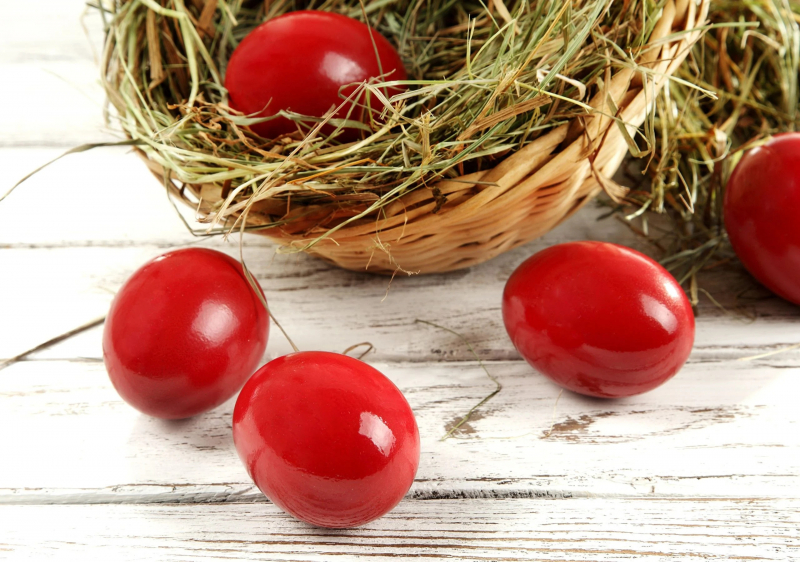
allpapercave.com 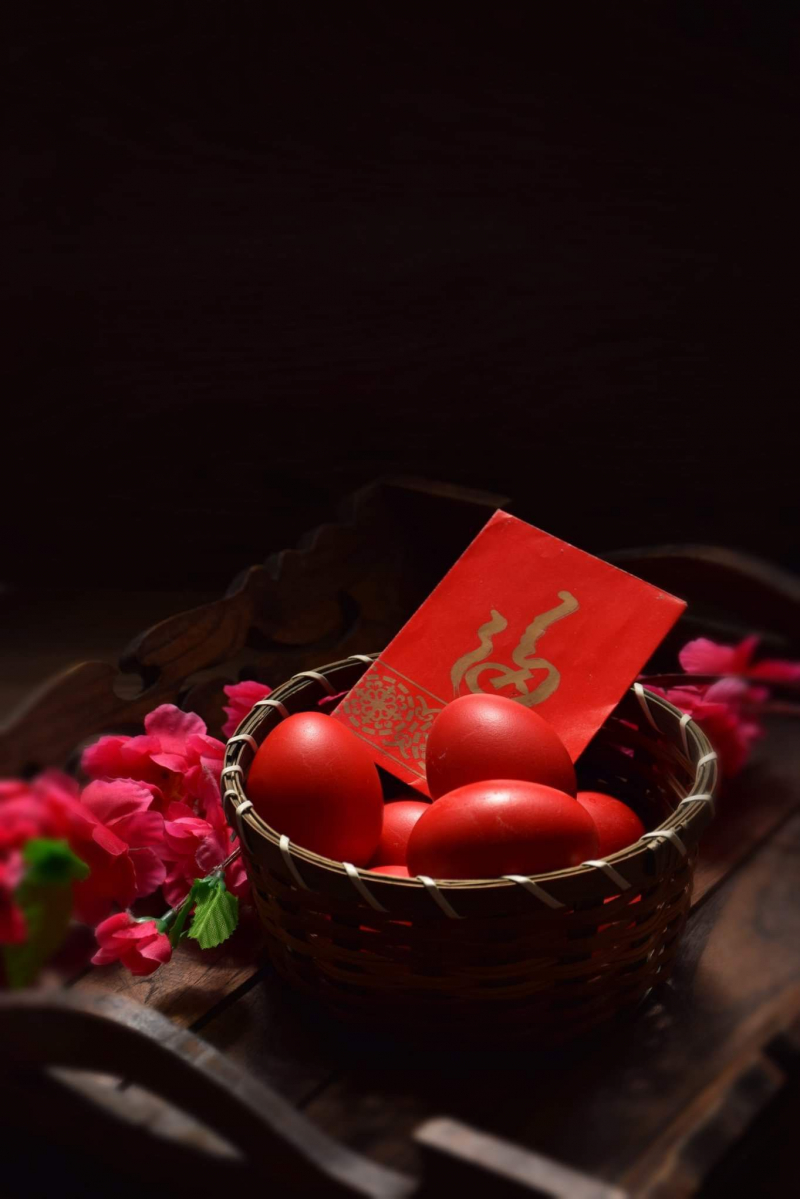
francesmarychizitalu.medium.com -
The birth of a child for Malaysians is not only a joy, but it is followed by many Malaysian culture, customs, and etiquette that need attention, especially the traditional post-natal birth rituals. Traditionally, a Malay woman often stays at home for forty days after giving birth to her kid. Mothers or moms-in-law frequently take care of new mothers. In order to increase circulation throughout the body while confined, new moms will take warm baths in water that has been cooked with lemongrass and ginger. Additionally, they will experience urut, a traditional post-natal massage often performed by a masseuse. The abdominal muscles' tightening and toning, energy revitalization, and blood circulation are all benefits of the massage.
The mother will also wear a bengkung, a cloth at least four meters long, which is wrapped around her abdomen. This procedure is thought to help her uterus contract and maintain her womb in place. The diet for expectant moms is particularly unique and includes "heating" foods and conventional medications. Spicy meals and "cooling" foods like pineapple, cabbage, and cucumbers are often avoided. To avoid headaches and "dispel wind," the mother's forehead and body are covered with herbal pastes including pilis, tapal, and param.
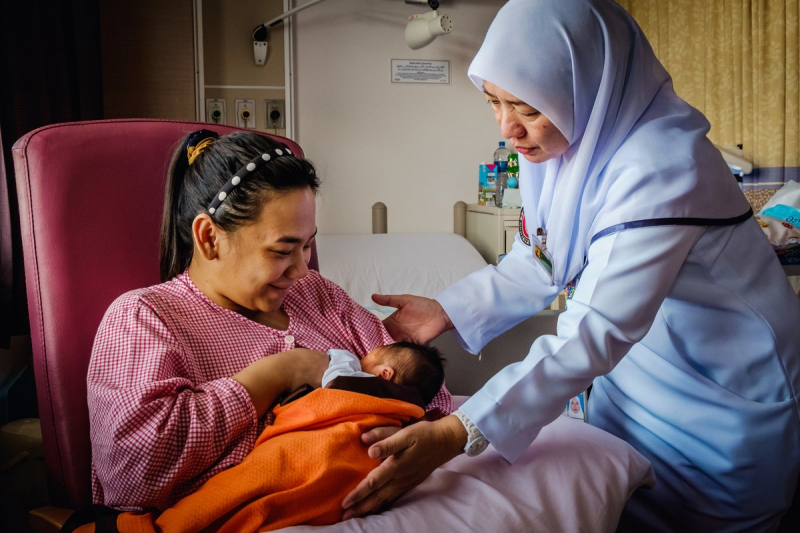
mobile.twitter.com 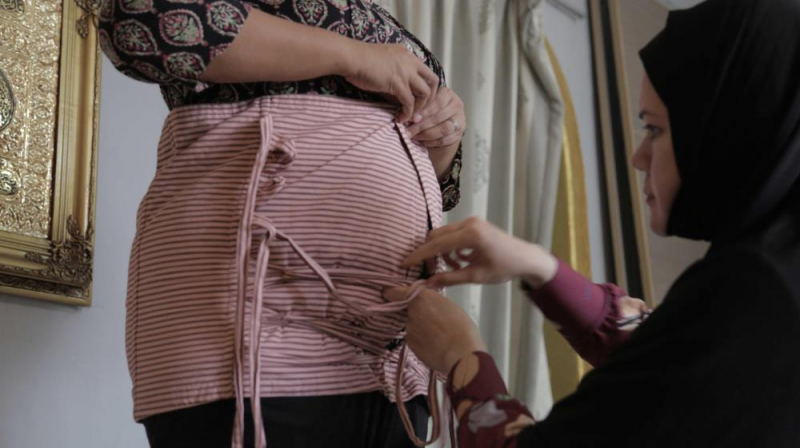
roots.gov.sg -
A ceremonial feast performed when a baby is born in accordance with Malay customs is cukur rambut (shaving a newborn's hair). And this custom's purpose is to welcome the kid to the extended family. The ceremony is customarily held seven days following the baby's birth. Today, though, some families want to push back the ceremony for a very long time.
In preparation for the ritual, young coconut with its top removed and adorned with flowers is set on a plate. The ceremony is usually attended by relatives and friends and it begins with the reading of Berzanji and Marhaban (songs in praise of Prophet Muhammad). A parent or other family member then carries the infant in their arms as another brings a tray with the chopped coconut on it. Guests will be approached and requested to cut a tiny lock of the infant's hair, which will then be inserted into the coconut. The infant's head is completely shaved at the conclusion of the ritual. The baby’s hair is then weighed and the family would donate the weight of the hair in gold or its monetary equivalent to charity.
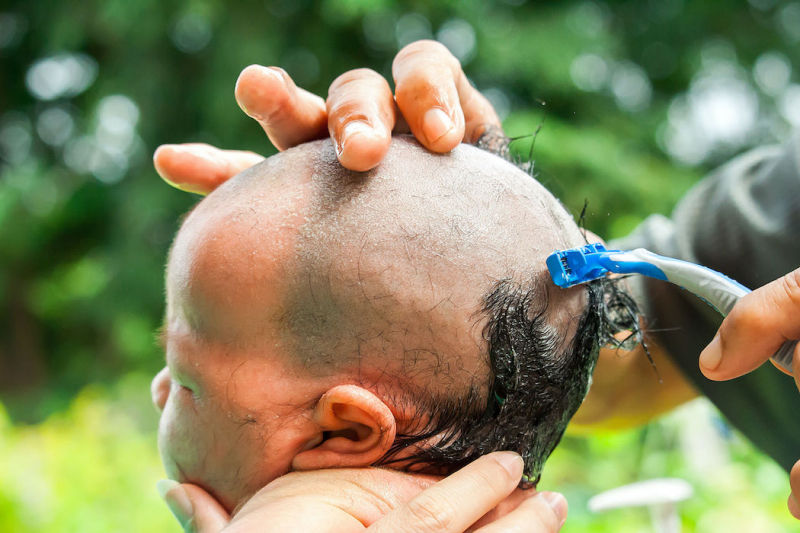
parenthood.my 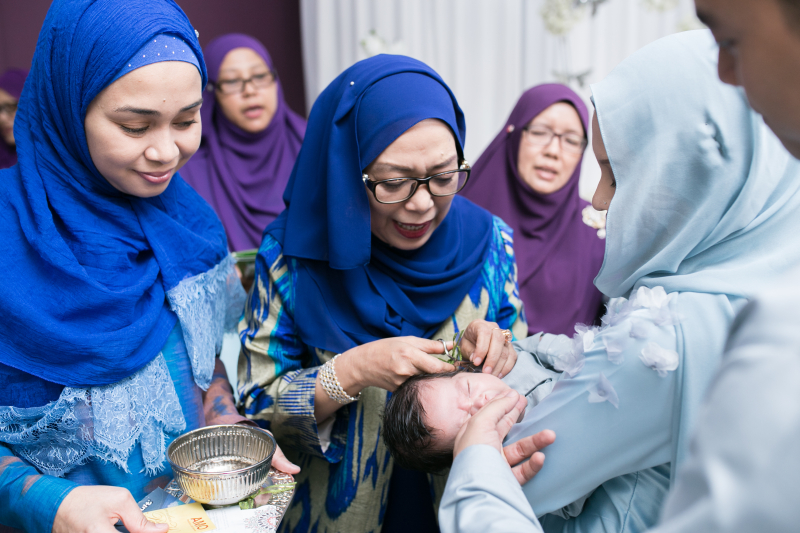
bridestory.com -
Tahnik and Aqiqah are noticed in Malaysian culture, customs, and etiquette. Parents who follow Islamic birth traditions also celebrate the birth of a newborn by performing the Tahnik and Aqiqah rituals. Tahnik involves applying a small amount of softened date or honey to the baby’s palate, followed by recitation of the doa (supplication). Aqiqah, on the other hand, symbolizes the parents’ gratitude for the child with which they have been bestowed. It involves the sacrifice of goats or sheep (two for a boy and one for a girl). The rites of tahnik and aqiqah are often carried out when the infant is seven, fourteen, or twenty-one days old.
Aqiqah and Tahnik are used to announce a baby's birth. Having a kid is a wonderful gift from the Creator. Another purpose is to extend invitations to friends, neighbors, and family to join in the joyful celebration. The poor should be included in the celebration by offering them food and meat served on this occasion.
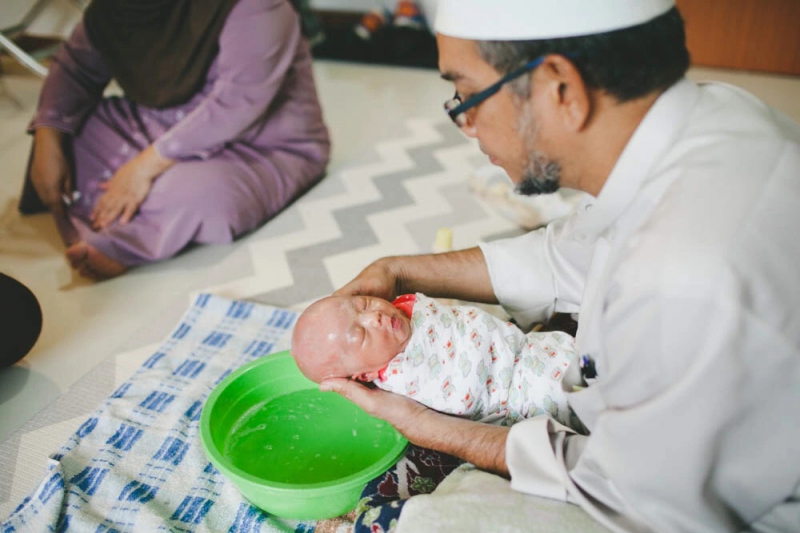
bigstockphoto.com 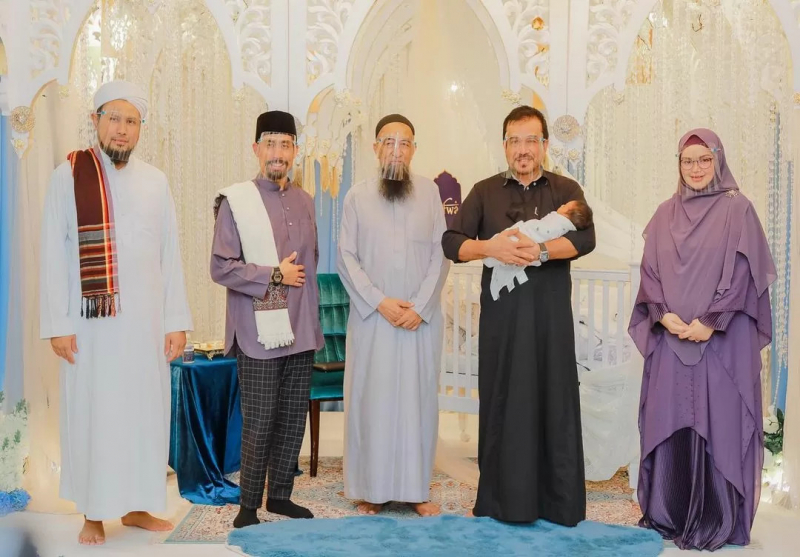
krakentales.wordpress.com -
Muslims pray five times per day, usually in congregation at a mosque. While Friday is a special day for Muslims, it is not considered a day of rest or a "Shabbat". Malays would go to Friday (Jumaat) prayers at a mosque at midday in accordance with Islamic customs. While morning school sessions are dismissed early and afternoon sessions start later to offer time for pupils and parents to complete the prayers, most companies will give Malays and Muslim workers a two-hour lunch break, or even longer, on Fridays.
Muslim men are required to attend Friday prayers as long as they are not traveling, while women are given the option to attend, given their traditional role in the family when Islam was established. If Malaysians miss Friday prayers, they will incur God's anger and endure a punishment appropriate to the sin they committed. Even those who refuse to obey God's commands, the door of their heart will be closed over time from receiving guidance and making them go astray and continue to commit other sins.
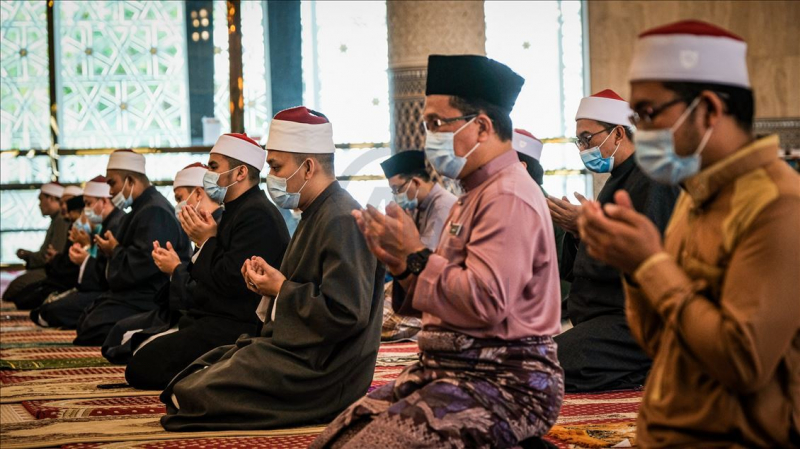
aa.com.tr 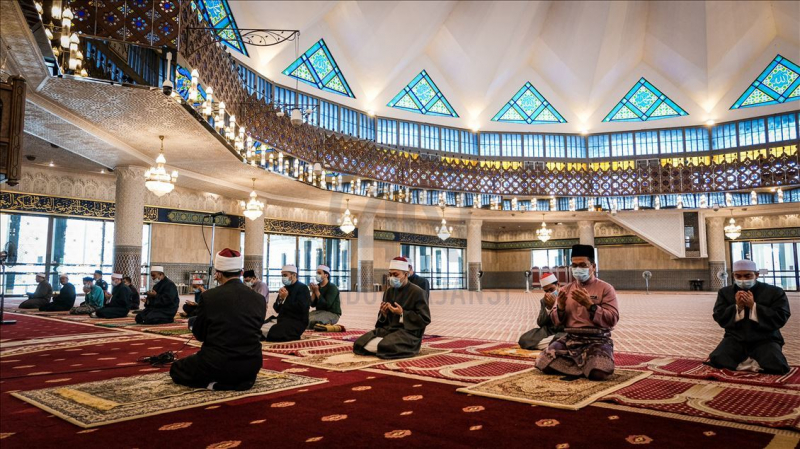
aa.com.tr -
One of Malaysian culture, customs, and etiquette that you should know is Weddings. The majority of Malay weddings are spectacular, joyous celebrations with a large guest list. Ceremonies may be held over several days in traditional Malay weddings. The marriage is solemnized during the akad nikah (solemnization ceremony). The highlight of the wedding is the bersanding (sitting-in-state ceremony), which is followed by a feast for family and friends.
Bersanding is where the couple is seated next to each other on a sofa called the Pelamin. This is a mark of approval and blessing. Loved ones and guests offer their blessings by throwing a combination of bunga rampai (finely cut aromatic Pandan leaf, sprayed with perfume) liquid rice flour, and rose water over the couple – these are laid out on a tray. The guests who bless the couple are offered bunga telur, the symbol of fertility (at modern weddings these are usually scented soaps, sweets, or chocolates).
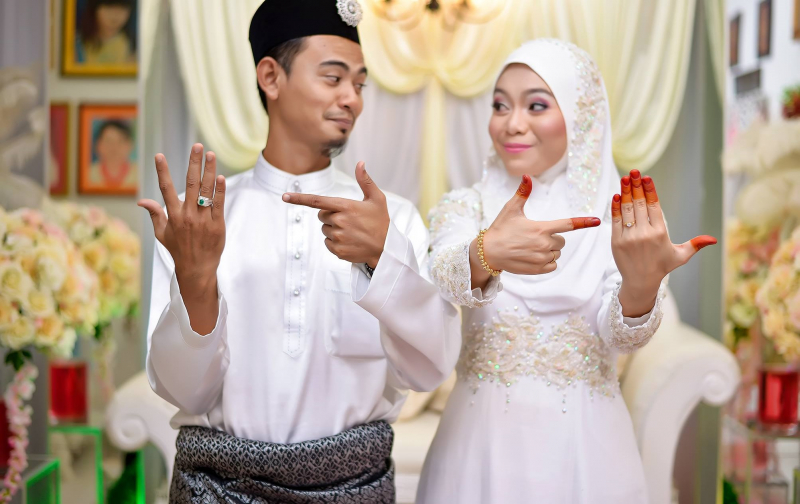
cilisos.my 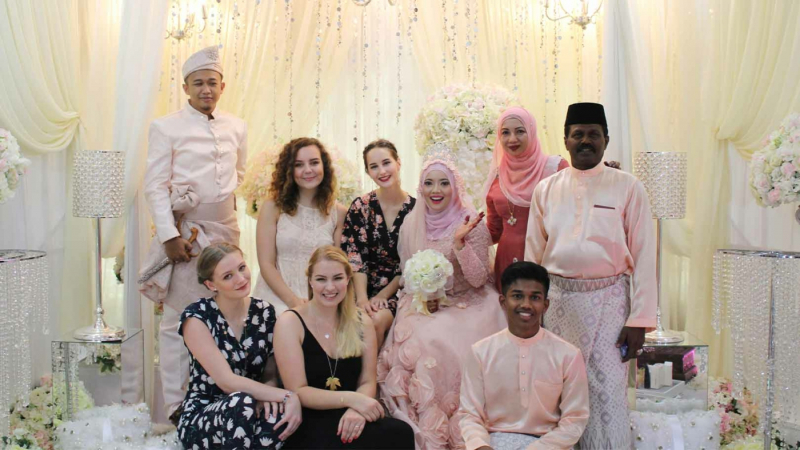
-
Like in many other Asian nations, Malaysia's traditional New Year provides an occasion for family members to come together to reunite in harmony and love. People can dine, dress up, and enjoy the spring celebration at this time. Malaysian New Year's Day begins on January 1 (according to the Islamic calendar). The streets are covered with a variety of brilliant hues, and the houses are cleaned and decorated. However, around ten days before New Year's Day, Malaysian Muslims begin fasting (eating only small meals before sundown), believing that this is the proper way to demonstrate compassion for the suffering of the impoverished on earth as taught by Allah's scripture.
The traditional dish on New Year's Day in Malaysia is called Otak, also known as Otah. Tourists will easily find this dish anywhere, in the city's food centers, restaurants, or in family meals. When meeting on New Year's Eve, Malaysians have the custom of gently touching their hand to the palm of the other person, then retracting their hand and holding it close to the heart for a few seconds. New Year's Eve in Malaysia is very interesting with the peacock feather competition. Two people standing about three or four meters apart, each holding a beautiful peacock feather, and then rushing in to pick up the other's nose and ears, whoever laughs first loses.
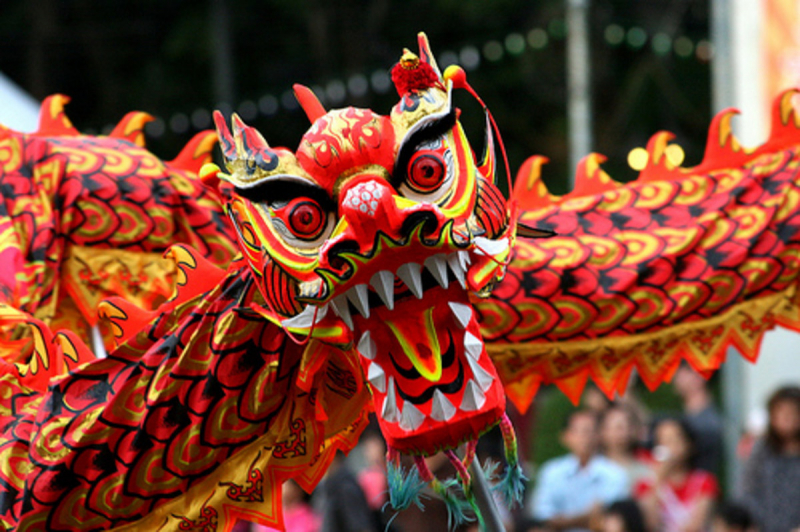
economicsdiscussion.net 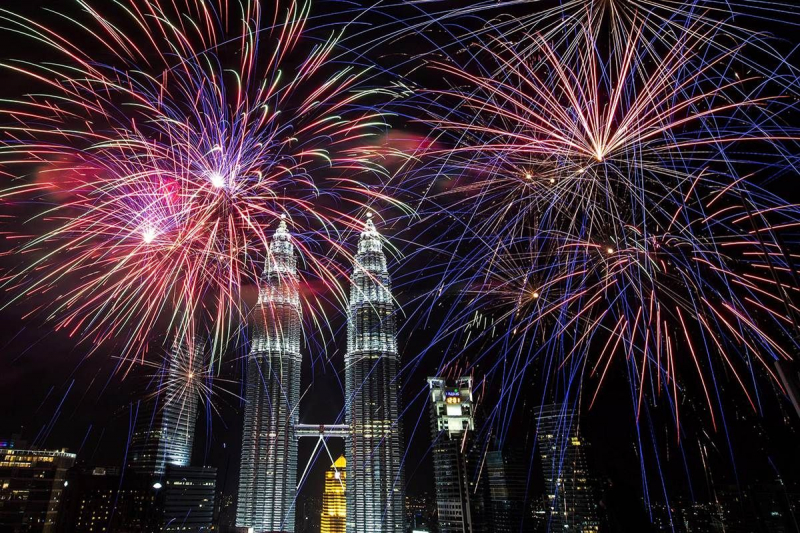
asianews.it -
The Deepavali Festival in Malaysia, also known as Diwali, is celebrated from November 4 and lasts for 5 days. Each day has a profound human meaning expressing the wish for "joy - light - happiness". In the past, Deepavali was an important religious festival for Hindus in Malaysia. And today, not only in the capital Kuala Lumpur but throughout Malaysia, Deepavali is a common festival for everyone. All over Malaysia, thanksgiving prayers and baptismal rites are held at temples and home altars. Deepavali Festival of Lights is an occasion when Malaysians return home to gather, have fun together, light kuthuvilakku - a traditional Indian oil lamp and receive the blessing of Lakshmi - a goddess prosperous.
Visitors participating in the festival will admire the unique art fireworks display, and outdoor music performances and enjoy typical Indian dishes at the Little Indian area. Food stalls are sold everywhere, opening a unique culinary world that awakens the dining soul of all visitors.
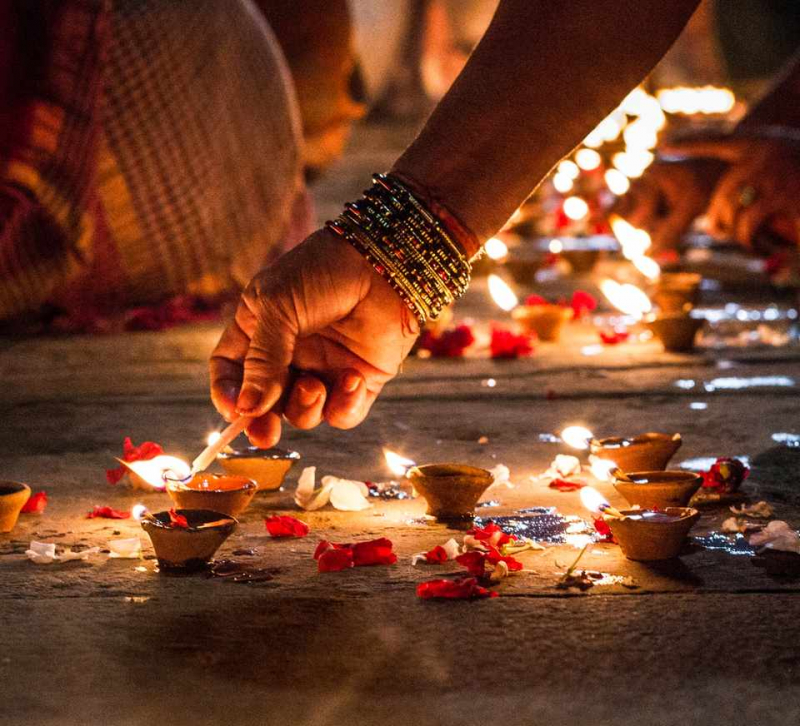
bbcgoodfood.com 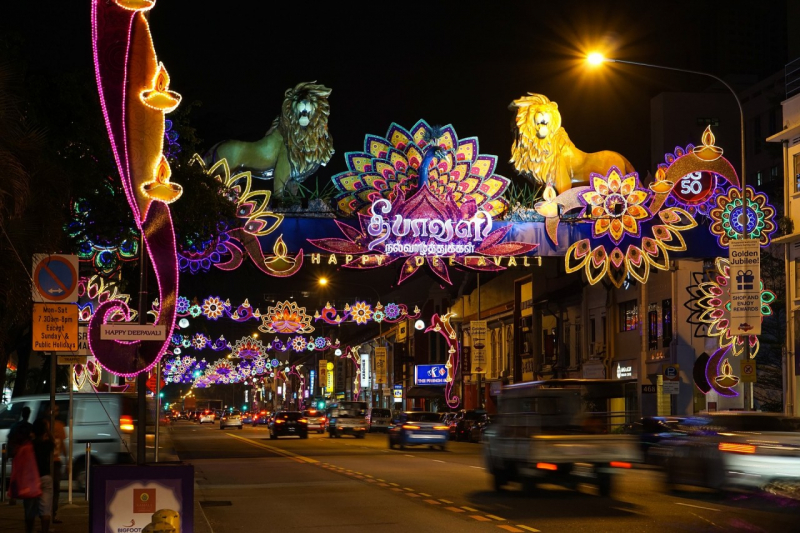
thedrum.com































